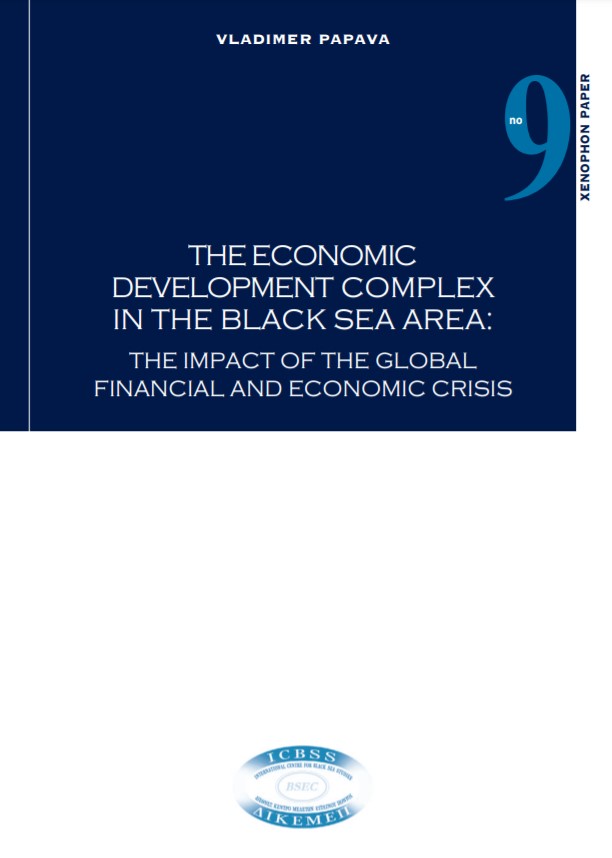 Title: The Economic Development Complex in the Black Sea Area: The Impact of the Global Financial and Economic Crisis
Title: The Economic Development Complex in the Black Sea Area: The Impact of the Global Financial and Economic CrisisSeries: Xenophon Paper Series
Published by: ICBSS
Release Date: May 2010
Pages: 96
Author: Vladimer Papava
Preface by: Dimitrios Triantaphyllou
Despite the widely divergent economies of the countries of the Black Sea region in terms of structure and levels of development, a number of common challenges concern them as a whole. Among these, the global economic and financial crisis has deeply affected the region collectively and each country individually.
Written by Vladimer Papava, a well-known economist and policy practitioner, this Xenophon Paper touches upon the consequences of the crisis on the countries of the Black Sea region in a specific analytical framework. Based on his own “theory of necroeconomics,” Papava assesses, in the context of the ongoing crisis, the key economic obstacles that the countries of the region face in achieving sustainable economic development. His analysis is based on two economic phenomena: the “necroeconomy” and the “zombie-economy.” A “necroeconomy,” which is created by uncompetitive industries (the “necrocompanies”) that are remnants of the command economy, differentiates the economy of post-Communist capitalism from all other models of capitalism. In times of economic crisis, though,“necrocompanies” can also appear in developed economies, as “zombie-firms,” creating a “zombie-economy.
The edition is available here.
